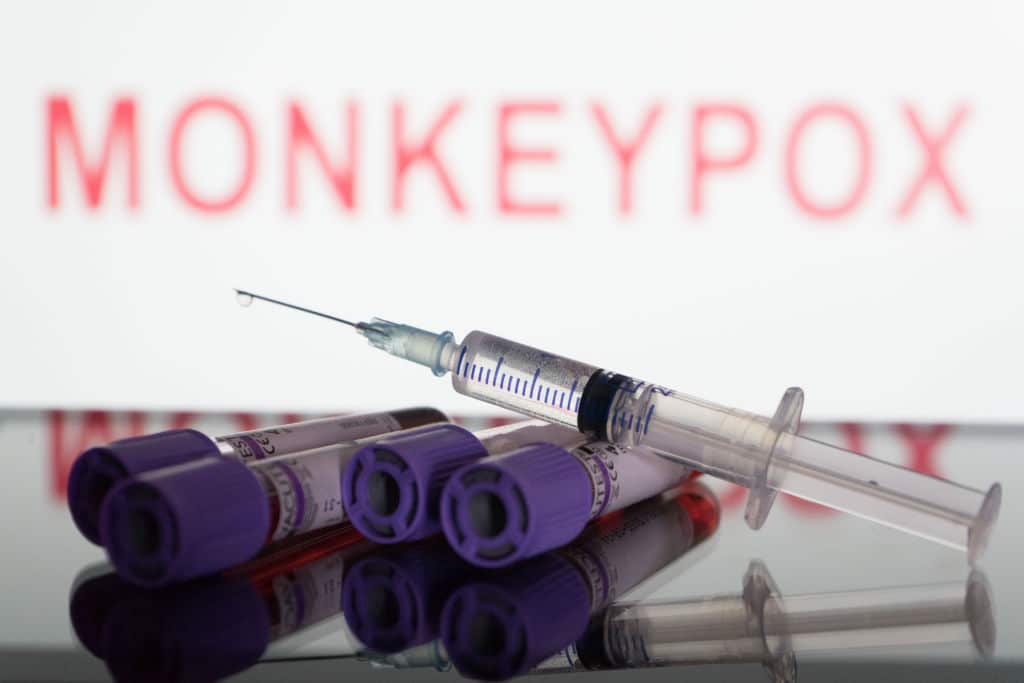TOPLINE
People vaccinated against monkeypox were 14 times less likely than those who were not vaccinated to contract the disease, Centers for Disease Control and Prevention Director Rochelle Walensky said Wednesday, offering the first data on the real-world effectiveness of the Jynneos vaccine since the U.S. began rolling out the shot.
KEY FACTS
Walensky said during a press briefing that she has a “level of cautious optimism,” about the preliminary data, which was collected between July to September 2022 from patients who had received one dose of the Jynneos vaccine across 32 states.
The results suggest that even one vaccine dose offers at least some protection against infection as early as two weeks after getting the shot, though Walensky stressed that two shots are still recommended.
The CDC director added that preventative behavior changes—such as avoiding close skin-to-skin contact with someone who has monkeypox—can also help drive down infections, especially as the government continues to collect data on the durability of the vaccine.
The White House will allow people to get vaccinated in other parts of the body besides the forearm, including their shoulder or upper back, after jurisdictions and advocates have reported to the government that some are declining to get the shot to avoid stigma from having a visible mark from the vaccine on their arm, said Demetre Daskalakis, the deputy White House monkeypox coordinator.
Loading...
The news comes as the number of monkeypox cases around the world and in the U.S. continues to fall.
BIG NUMBER
More than 800,000. That’s how many monkeypox vaccine shots have been administered so far, White House monkeypox coordinator Robert Fenton said Wednesday.
SURPRISING FACT
The U.S. has reported 25,341 cases across all states since the outbreak began in May, according to the CDC. New infections began to fall toward the end of August when more more vaccines become available and after the most at-risk population, men who have sex with men, took a host of actions to prevent the spread of the disease, officials have said in the past. According to a recent study shared by the CDC, about 50% of gay, bisexual and other men who have sex with men reported taking steps to protect themselves and their partners from monkeypox.
KEY BACKGROUND
The White House declared monkeypox a public health emergency in August to streamline resources and boost vaccine supply after cases began to surge. The U.S. is reliant on a small Danish biotechnology company, Bavarian Nordic, for the Jynneos two-dose regimen vaccine, the only shot approved by the Food and Drug Administration for monkeypox. Data on the effectiveness of monkeypox vaccines in the real world has been extremely limited, as the Jynneos shot was originally designed to prevent smallpox, a related disease. It’s also because previous cases around the world were rare, though the disease is endemic to certain regions of Africa, where it has been largely ignored by the international community. Studies conducted by Bavarian Nordic and data from Africa have shown Jynneos works against monkeypox, according to the CDC.
TANGENT
Facing a shortage of vaccines and a backlash over a slow shot rollout, the federal government last month approved a new vaccination strategy known as “dose-sparing” to stretch the number of shots. The new method allows health care workers to extract up to five doses from a one-dose Jynneos vaccine vial to inject intradermally, or into the skin, instead of subcutaneously, or underneath the skin into the fat. The National Institutes of Health began a clinical trial earlier this month to evaluate the effectiveness of this new method.
FURTHER READING
NIH Will Study New ‘Dose Sparing’ Monkeypox Vaccination Method (Forbes)
By Madeline Halpert, Forbes Staff
Loading...
